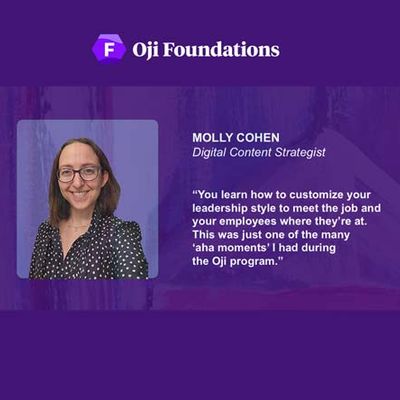The Essential Skill Your Employees Should Have Now

US workers were stressed out at record-high levels in 2022 — and at a rate 20% higher than the global average. While there are many things employers can do to reduce stressors, there is one must-have skill your employees should have to help them better manage their stress, be more productive, and improve their overall mental wellbeing. And believe it or not, L&D professionals like you could be the best hope for these employees and their organizations. We’ll explain how in this post.
First, let’s quantify the problem. Research from the American Institute of Stress (yes, that’s a real thing) found in 2022 that nearly all workers in the US (94%) reported feeling stressed at work. And, while stress is not always a problem, this next statistic from the institute’s study is concerning, because it indicates most of these employees are planning to act because the stress is overwhelming: 63% of US workers are ready to leave their job due to work-related stress.
Remote work. Return-to-office mandates. The Great Resignation. Quiet quitting. Mass layoffs. Economic recession. The lingering effects of the pandemic and lockdowns. These significant external stressors are almost certainly affecting your staff emotionally, which means they’re almost certainly having a negative effect on your organization’s productivity and overall wellbeing.
Why Your L&D Team Is So Important During these Times
In challenging times like this, even if your organization has highly trained and knowledgeable employees in every role — talented sales reps, creative designers, brilliant engineers, etc. — those employees might be unable to bring their best selves to work because they’re emotionally distracted, disheartened or overwhelmed.
That’s where you come in.
For your organization to thrive during these troubled times, the most valuable tools you can deploy are fundamental skills for your employees and managers — skills such as self-awareness, high-quality decision-making, the ability to regulate one’s feelings, to appropriately respond to co-workers’ emotions and to create a culture of belonging and high performance.
In other words, bringing emotional intelligence training to your organization is more important today than ever.
3 Ways Emotional Intelligence Benefits Your Organization
Because of the tremendous practical implications of emotional intelligence — in the professional sphere, governmental and diplomatic relations, and our personal lives — this skillset once downplayed as “soft skills” has become a high-priority area of scientific study in recent years.
Leading research universities, behavioral psychologists, professional associations, and other organizations around the world have conducted thousands of studies on the effects of high (and low) emotional intelligence. Today, you can find scientific validation throughout the research community demonstrating the enormous benefits of fostering emotional intelligence skills across an organization. Here are just a few examples.
1. Emotional intelligence improves employee effectiveness.
Ample research has demonstrated a strong connection between emotional intelligence and employee performance. For example:
- Increasing an employee’s emotional intelligence has a positive effect on that employee’s productivity.
- Higher emotional intelligence lowers employees’ average rates of job burnout.
- Investing in improving employees’ emotional intelligence will lead to positive job performance.(Source: Department of Psychology, Qingdao University, China)
- Employees’ ability to identify their own moods, distractions, and biases — “self-awareness” — accounts for 68% of decision quality and 65% of conflict management capability.
- When employees have low self-awareness, their teams at work suffer.
- Having employees with low self-awareness on a team — for example, team members who believe they contribute more than they actually do — can cut that team’s chances of success by 50%. (Source: Research from DePaul University and reported in Harvard Business Review)
2. Emotional intelligence translates to more effective management and leadership.
A large body of research also shows a direct link between emotionally intelligent leaders and more successful teams and organizations. For example:
- Employees of emotionally intelligent bosses report feeling fulfilled, challenged, and happier than those whose supervisors have low emotional intelligence. (Yale University)
- Emotionally intelligent supervisors have employees with higher average job satisfaction, feelings of psychological safety, and ability to tap into their creativity in their jobs. (Yale University)
- Among employees who feel they can approach their manager with any question, 56% report being engaged at work. But for those who don’t have that type of relationship with their boss, only 2% feel engaged. (Gallup)
These findings help explain why, according to research cited in Harvard Business Review, strong social skills are now corporations’ top qualification for c-level executives.
3. Emotionally intelligent companies are more successful.
Pulling all this information together, we can find ample data showing clearly that increasing your staff’s overall emotional intelligence can lead to greater organizational success. For example:
- Companies whose managers and employees have the emotional intelligence to earn the loyalty of great talent earn 33% higher revenue. (US Chamber of Commerce)
- Emotional intelligence in executives has been linked to higher profits. (Psychology Today)
And for real-world proof of the two research findings above:
- Executives of PepsiCo with higher emotional intelligence generated 10% more output than their counterparts.
- Training its workforce on emotional intelligence helped Sheraton increase market share by 24%.
- L’Oreal sales reps who scored high on emotional intelligence brought in $2.5 million more than their counterparts. (Source: Academia.edu)
- “Failing to consider the impact of emotional intelligence attributes when selecting and training leaders will be very costly to companies in terms of reduced coworker retention and commitment, and may have long-term negative impacts as lower coworker satisfaction, reduced commitment, higher turnover, greater absenteeism, and other negative effects become apparent within the organization.” (Texas Woman’s University)
Take the Next Step
As this wide range of statistics should make clear, organizations that invest in emotional intelligence training outperform their competitors who don’t. But how can you give your organization this competitive advantage? What should you do next?
As we’ve noted in previous blog posts, many leading scientists, analysts, and research universities have demonstrated that the traditional training workshop model doesn’t work. Long lectures, with dozens of new concepts presented in rapid succession — without giving learners ample time to process or practice them — has been proven an ineffective approach for learning new material.
That means the standard, day-long training session is the wrong approach to bringing emotional intelligence training to your organization. A far better way — an approach that leverages teaching methods scientifically proven to be effective, such as micro-learning and spiral learning — is the self-paced, mobile training method. And the pioneer in this reinvented workshop model for emotional intelligence is Oji Life Labs.
Ready to make your organization emotionally intelligent? Learn about the Oji Emotions Pilot Program and no-risk guarantee.
Latest Posts
BACK TO HOME ❯Sign up for our People-Powered Newsletter.

 Meet our Program Experts
Meet our Program Experts
 Why Oji is Different
Why Oji is Different
 First Impressions of the Oji Foundations Program
First Impressions of the Oji Foundations Program